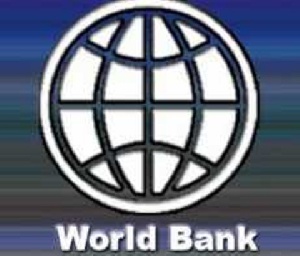The World Bank has urged countries to take steps now to rebuild from COVID-19.
According to the World Bank Group’s Global Economic Prospects report analysis, the COVID-19 pandemic and the economic shutdowns were dealing a severe blow to the global economy and especially poorer countries.
It said developing countries and the international community could take steps now to speed recovery after the worst of the health crisis had passed and blunt long-term adverse effects.
It noted that short-term response measures to address the health emergency and secure core public services would need to be accompanied by comprehensive policies to boost long-term growth, including by improving governance and business environments, and expanding and improving the results of investment in education and public health.
The report said to make future economies more resilient, many countries would need systems that could build and retain more human and physical capital during the recovery – using policies that reflect and encourage the post-pandemic need for new types of jobs, businesses and governance systems.
The analysis has been released ahead of the June 8 issuance of the full report, which would include the Bank Group’s latest forecasts for the global economy.
“The scope and speed with which the COVID-19 pandemic and economic shutdowns have devastated the poor around the world are unprecedented in modern times.
Current estimates show that 60 million people could be pushed into extreme poverty in 2020. These estimates are likely to rise further, with the reopening of advanced economies the primary determinant,” said World Bank Group President David Malpass.
“Policy choices made today – including greater debt transparency to invite new investment, faster advances in digital connectivity, and a major expansion of cash safety nets for the poor – will help limit the damage and build a stronger recovery.
“The financing and building of productive infrastructure are among the hardest-to-solve development challenges in the post-pandemic recovery.
“We need to see measures to speed litigation and the resolution of bankruptcies and reform the costly subsidies, monopolies and protected state-owned enterprises that have slowed development.”
The report said the deep recessions associated with the pandemic would likely exacerbate the multi-decade slowdown in economic growth and productivity, the primary drivers of higher living standards and poverty reduction.
It said adding to the inequality problem from slow trend growth, the poor and vulnerable are among the hardest hit by the pandemic and economic shutdown – including through infection, school closures and lower remittance flows.
The report said measures needed to protect public health have undercut an already fragile global economy, causing deep recessions in advanced economies and emerging market and developing economies (EMDEs) alike.
It said EMDEs that have weak health systems; those that rely heavily on global trade, tourism, or remittances from abroad; and those that depend on commodity exports would be particularly hard-hit, the analysis notes.
The report said in the long-term, the pandemic would leave lasting damage through multiple channels, including lower investment; erosion of physical and human capital due to closure of businesses and loss of schooling and jobs; and a retreat from global trade and supply linkages. It said these effects would lower potential output – the output an economy can sustain at full employment and capacity – and labor productivity well into the future.
It said pre-existing vulnerabilities, fading demographic dividends, and structural bottlenecks would amplify the long-term damage of deep recessions associated with the pandemic.
“When the pandemic struck, many emerging and developing economies were already vulnerable due to record-high debt levels and much weaker growth. Combined with structural bottlenecks, this will amplify the long-term damage of deep recessions associated with the pandemic,” said Ceyla Pazarbasioglu, World Bank Group Vice President for Equitable Growth, Finance and Institutions.
“Urgent measures are needed to limit the damage, rebuild the economy, and make growth more robust, resilient and sustainable.”
The report said policies to rebuild both in the short and long-term entail strengthening health services and putting in place very targeted stimulus measures to help reignite growth.
It said this includes efforts to maintain the private sector and get money directly to people so that we may see a quicker return to business creation after this pandemic has passed.
The report said during the mitigation period, countries should focus on sustaining economic activity with targeted support to provide liquidity to households, firms and government essential services; adding that at the same time, policymakers should remain vigilant to counter potential financial disruptions.
- Commonwealth countries must create 5,000 jobs everyday till 2030 - Foreign Affairs Minister
- Use COVID-19 fund to strengthen health care, immunization financing — HFFG
- Parliament records a new case of coronavirus
- Breach of coronavirus safety protocols: GMA calls for action
- Chadians line up for Sinopharm as coronavirus vaccination campaign begins
- Read all related articles











